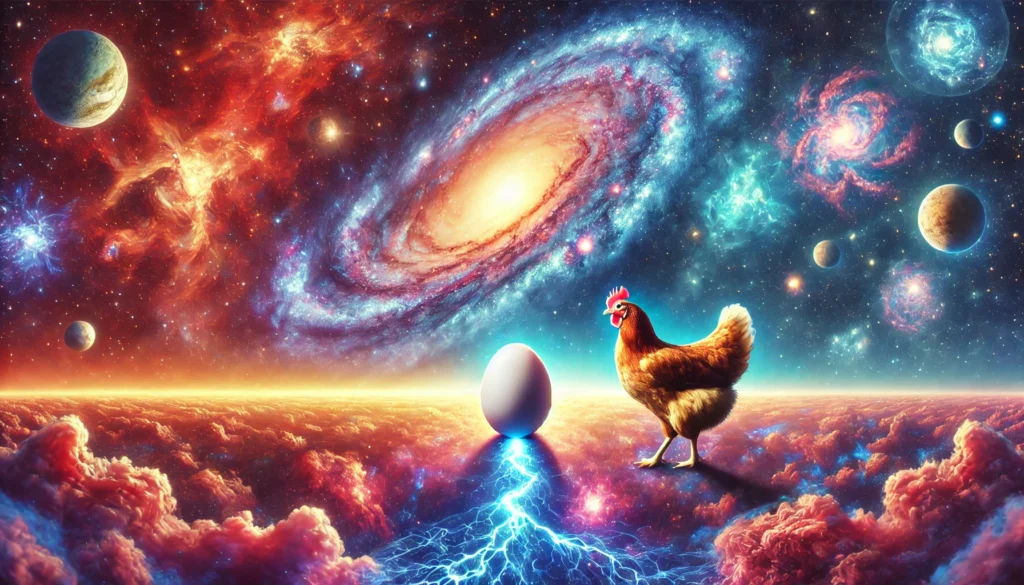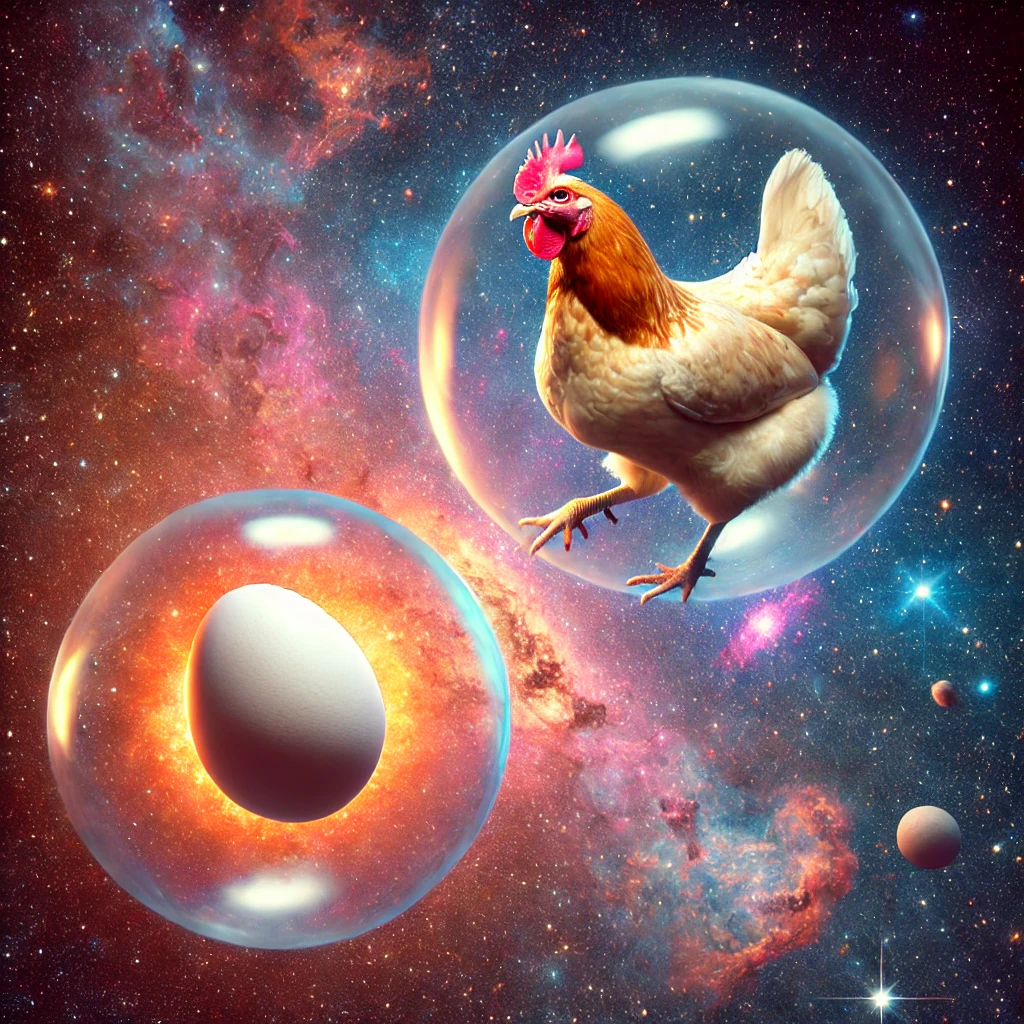The age-old debate of “Which came first, the chicken or the egg?” has perplexed philosophers, scientists, and casual thinkers for centuries. On the surface, it may seem like a simple riddle, but at its core, the question delves into profound issues of causality, evolution, and existence.
The Philosophical Perspective
Philosophers have long pondered this paradox as a metaphor for cause and effect.
- Aristotle’s View: Aristotle, the ancient Greek philosopher, avoided a definitive answer by proposing that both the chicken and the egg must have always existed in a cyclical nature.
- Modern Philosophy: Many contemporary thinkers view the question as an opportunity to discuss the nature of beginnings and how cycles of life operate in a broader existential context.
The Scientific Angle: Evolution Holds the Answer
Biologists and evolutionary scientists have approached the question with a focus on genetics and the process of evolution.
- The Egg Came First: Scientists argue that the egg preceded the chicken from an evolutionary standpoint. The reasoning is that at some point, a genetic mutation occurred in the embryo of a bird that was not quite a chicken but was closely related. This mutation led to the birth of the first true chicken from what we would call a “pre-chicken” egg.
- Role of Mutation: This supports the idea that eggs, as reproductive mechanisms, existed long before chickens did, as they were used by reptiles and other species millions of years ago.
Religious and Cultural Interpretations
Different cultures and religious traditions also provide unique perspectives:
- Biblical Interpretation: Many religious adherents believe that God created animals, including chickens, fully formed, which means the chicken came first.
- Symbolism in Other Cultures: In some traditions, the question symbolizes the inter connected ness of all life and the mystery of creation.
The Role of Genetics and DNA
Advances in genetics provide additional clarity:
- The protein ovocleidin-17 (OC-17), found in a chicken’s ovaries, is essential for forming eggshells. This means the production of chicken eggs specifically relies on chickens themselves, suggesting a loop where neither can exist without the other.

Breaking Down the Paradox
The question is a classic example of a paradox—a situation where two equally valid arguments appear contradictory. It challenges us to consider how systems evolve and how the concept of “beginnings” can sometimes be artificial.
The Broader Implications
Beyond chickens and eggs, this debate highlights deeper questions about causality:
- In Science: How do complex systems evolve?
- In Philosophy: Can we ever pinpoint the true origin of something, or are all beginnings simply points in an ongoing cycle?
Modern Humor and Pop Culture
In modern times, the chicken-or-egg question has transcended academia to become a lighthearted conversation starter. Comedians, writers, and creators often use it as a humorous way to explore life’s mysteries, blending philosophy with entertainment.
Conclusion: It Depends on Your Perspective
Ultimately, whether you believe the chicken or the egg came first depends on your perspective. From an evolutionary standpoint, the egg likely predates the chicken. From a philosophical or theological lens, the answer may be entirely different. Perhaps the true value of this question lies not in finding an answer but in sparking curiosity and thought about the nature of life, beginnings, and existence.

